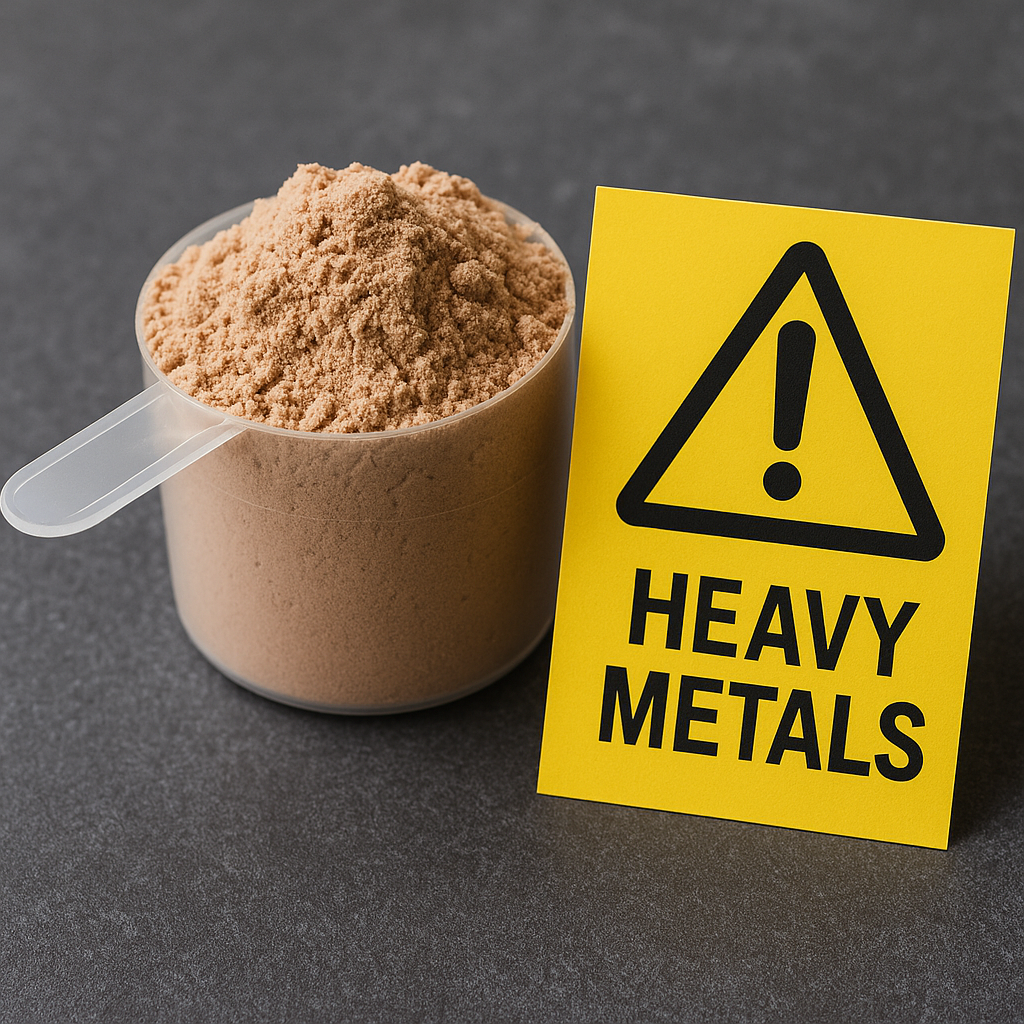Is Your Protein Powder Hiding Heavy Metals?
How your daily shake could be delivering more than just gains.

If you're into wellness, fitness, or just trying to eat a little better — odds are you've got a tub of protein powder stashed in your kitchen.
From post-workout shakes to smoothie boosts, protein supplements have become a daily habit for millions. But here's the thing: just because something is marketed as "healthy" doesn't mean it's clean.
A growing body of research shows that some of the most popular protein powders contain concerning levels of heavy metals, including lead, arsenic, cadmium, and mercury.
Yes, really.
What a Latest Study Reveals
A new report from the Clean Label Project® titled Protein Study 2.0 delivers one of the most comprehensive contaminant audits ever conducted in the supplement industry.
Over the course of this study, the Clean Label Project:
- Tested 160 protein powders from 70 of the top-selling brands, representing 83% of the U.S. market
- Conducted 35,862 tests on heavy metals and industrial chemicals
- Benchmarked results primarily against California Prop 65 safety thresholds
Key Findings:
- 47% of products exceeded Prop 65 safety limits for at least one heavy metal
- Organic powders had 3x more lead and 2x more cadmium than non-organic products
- Plant-based powders contained about 3x more lead than animal-based powders
- Chocolate-flavored powders had up to 4x more lead and 110x more cadmium than vanilla or unflavored versions
- BPA and BPS were found in only 3 of 160 products, a major improvement from earlier years
- Only one brand, Puori, holds the Clean Label Project Transparency Certification for protein powders
How Do Heavy Metals Get In?
Protein powders mainly come from whey (a dairy byproduct) or plant sources like pea, rice, or soy. These ingredients can absorb heavy metals from soil, water, or processing.
Plant-based proteins are especially vulnerable — not because they're unsafe, but because plants like rice and peas naturally accumulate metals from the environment.
Even "certified organic" doesn't guarantee purity. In fact, organic powders often had more contamination than conventional ones, especially with lead.
Why This Isn't on the Label
There are currently no federal regulations requiring supplement companies to test for heavy metals or disclose results.
Certifications like "USDA Organic" or "Non-GMO" don’t cover heavy metal content. So unless brands voluntarily do third-party testing and share results, consumers are left in the dark.
What These Contaminants Do to Your Body
Heavy metals bioaccumulate — they build up over time. Long-term exposure can cause:
- Lead: Neurotoxicity, hormone disruption, reduced IQ in children
- Arsenic: Skin problems, cardiovascular damage, increased cancer risk
- Cadmium: Kidney damage, bone weakening
- Mercury: Nervous system and reproductive harm
The effects are worse for pregnant individuals, children, and daily supplement users.
How to Choose a Clean Protein Powder
Until regulations improve, protect yourself by:
- Looking for third-party certifications like Clean Label Project Transparency, NSF Certified for Sport, or Informed Sport
- Avoiding rice-based proteins, which absorb more arsenic
- Choosing unflavored or vanilla options over chocolate flavors
- Checking if brands publish batch-level lab reports
- Considering whey or collagen powders, which typically test lower for heavy metals
FAQ
Final Thoughts
Protein powder is a useful tool for muscle building, recovery, and nutrition. But with nearly half of products exceeding safety limits for heavy metals, it's time to look beyond marketing claims.
The Clean Label Project's Protein Study 2.0 exposes hidden risks and urges the industry toward transparency and stricter safety standards.
At TraceWell, we’re building tools to make transparency easy — so you can trust what’s in your scoop.
References
- Clean Label Project (2024). Protein Study 2.0: Protein Powder Category Report.
- World Health Organization (2022). "Health risks of heavy metals from dietary supplements."
Want to Know What's Really in Your Protein Powder?
Use TraceWell to scan, compare, and choose supplements with confidence. Get science-backed safety ratings and ingredient transparency for products.
Try TraceWell Free